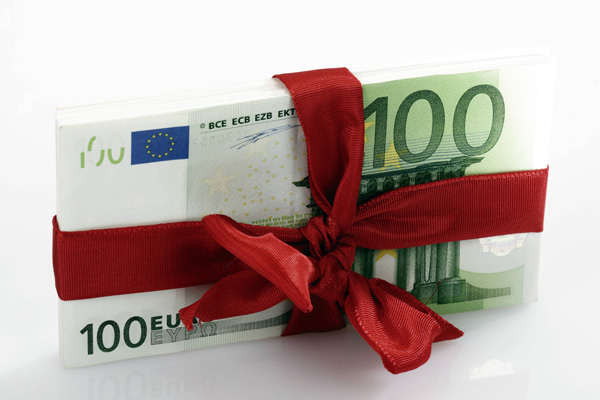
Working in Germany. Christmas Bonus in Germany 2022. Weihnachtsgeld (Christmas bonus) is usually paid to employees in Germany in November. Its amount depends primarily on the employment industry.
According to information from the Federal Statistical Office, in 2021 the average Christmas bonus was EUR 2,677. In the service sector, employees received Christmas bonuses in the amount of just EUR 301 on average, and in the energy sector, record amounts of EUR 5.369. We explain below who is entitled to the Weihnachtsgeld allowance in 2022 and how much will the average Christmas bonus be in individual industries.
Who is entitled to the Weihnachtsgeld allowance in 2022 and how much will the average Christmas bonus be in individual industries?
The Weihnachtsgeld Christmas bonus is NOT guaranteed by law. Nevertheless, there are industries in which employees always receive a bonus, although the amount may vary from year to year.
In general, the holiday bonus is paid in industries where the employment rights and the monthly salary are determined by collective labour contracts or company agreements drawn up in consultation with trade unions.
Usually, collective labour contracts stipulate that the amount of the holiday bonus should be the same as the monthly salary, which is why weihnachtsgeld in many industries is commonly known as the thirteenth salary. According to the Federal Statistical Office, around 90 percent of workers covered by collective agreements in Germany will receive a Christmas bonus in 2022.
In companies where employees are not covered by collective agreements, it is the employer’s good will to pay the holiday bonus, but there are situations where the employee has the right to claim it. According to the German Labour Code, the principle of equal treatment of employees applies. This means that the employer cannot omit some employees from paying the Christmas bonus.
This also applies to employees employed on the so-called part-time job. (Minijob)
READ ALSO: Wages in Germany, Gross and net salary – everything you need to know about it
Christmas bonus (Weihnachtsgeld) in Germany who’s entitled to it – and how much should it be?
Low Christmas bonuses from 300 to 860 euros
The lowest Christmas bonus is awarded to people employed on the basis of collective agreements in the “employment agency and leasing” sector. Here, the average Christmas bonus is EUR 301 and is due to 99.0% of employees covered by collective agreements. Also in the hotel sector, there is a below-average Christmas bonus of around 861 euros. 92.4% of employees subject to collective agreements will receive it.
High Christmas bonuses – even 5,369 euros
In 2021, the highest Christmas bonus was paid to employees of the “mineral oil production” sector. There, workers covered by collective agreements received an average Christmas bonus of € 5,651 . In the “chemical products production” sector, they received EUR 5,369 , and in the energy sector – EUR 5,369 .
Average monthly allowance in Germany
According to information from the Federal Statistical Office , the gross holiday bonus for all employees in Germany in 2021 averaged EUR 2,677 . This is an increase of 1.9 percent compared to the previous year. In addition, the average Christmas bonus of € 2,695 is 5.5 percent higher in the West than in the East, where workers receive an average of € 2,554 . On the other hand, slightly more workers in the eastern federal states are entitled to the Christmas bonus. In 2021, 88 percent. In the east an 87 percent. In the west received a special Christmas bonus.
Christmas bonus in Germany in private companies
In companies not bound by a collective laboUr agreement, less than half of the employees receive the holiday bonus. Last year, about 42 percent received the bonus.
Taxation of the Weihnachtsgeld Christmas bonus
The thirteenth salary, Christmas bonus, discretionary bonuses or profit sharing are taxed in Germany in the same way as monthly wages. Bonuses paid in the form of goods vouchers or other non-cash forms are not subject to taxation.
